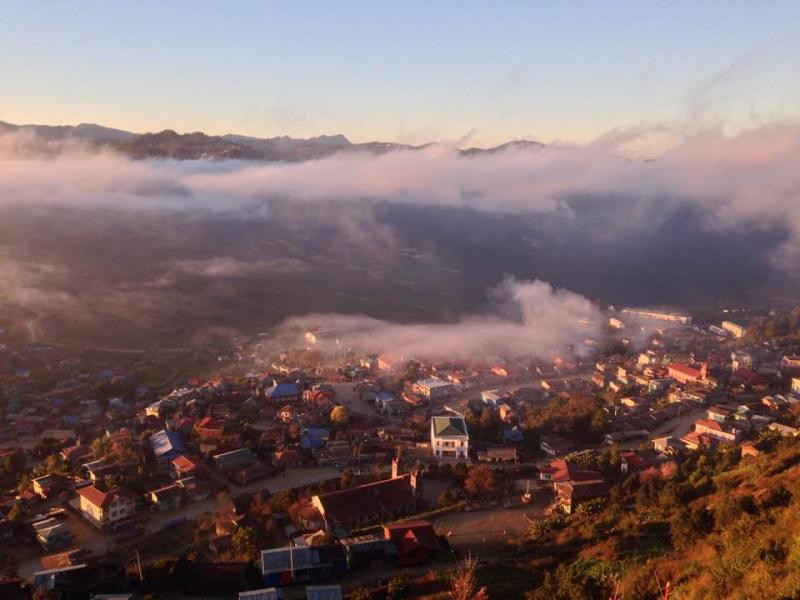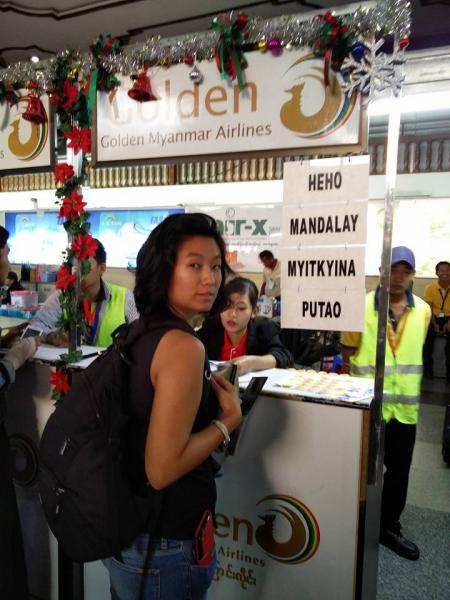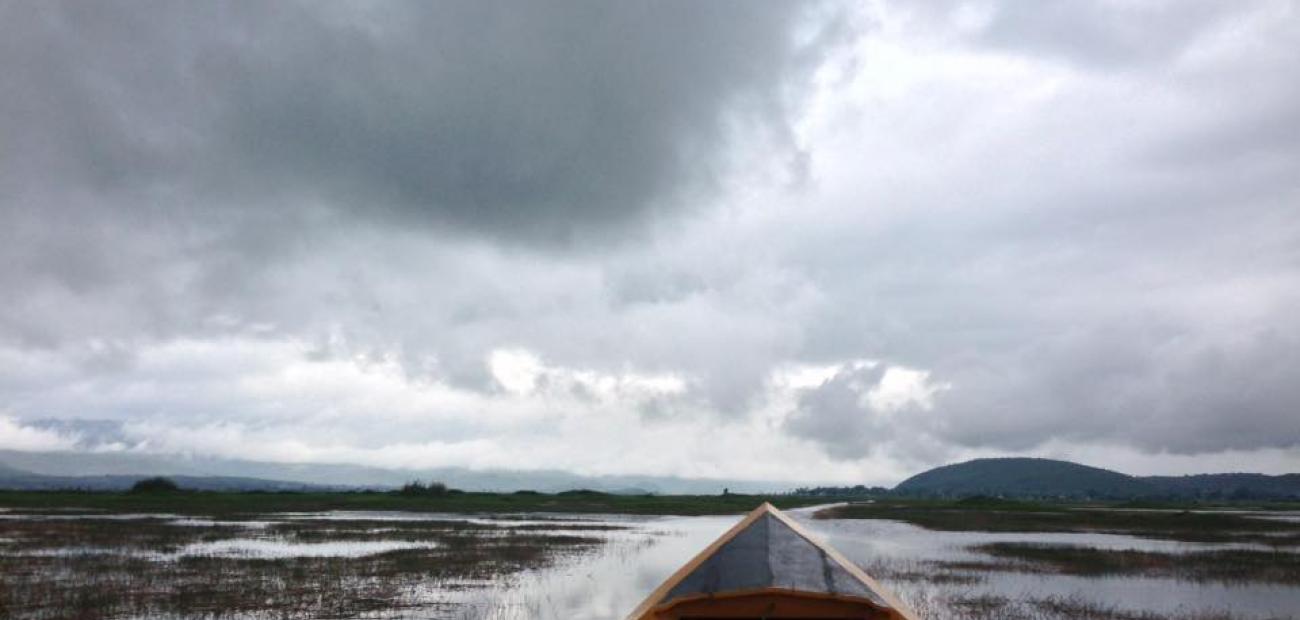To subscribe to receive a rundown of new Kite Tales diaries in your inbox once a month, click here. To support our project to help Myanmar journalists and creators, click here.
January 31, 2021
Rome
It was just before midnight on an ordinary Sunday evening. I was sitting on our living room sofa, watching what was supposed to be the last funny YouTube video before heading to bed while absent-mindedly scrolling through my Twitter feed. You know, the normal end-of-weekend stuff.
Suddenly I started to see alarming tweets from activists and journalist friends saying Myanmar’s military had staged a coup and arrested senior civilian leaders in pre-dawn raids, just hours before a new civilian parliament was to be sworn in.
For a few seconds, I couldn’t breathe. Rumours had been swirling for weeks, pretty much since results of the Nov 2020 polls were announced, when Daw Aung San Suu Kyi and her party won yet again in a landslide, that such a move was imminent, but it seemed too improbable.
I mean, who asks for a new game when you already have four aces in your hand? The military had pretty much everything it wanted, or so we thought. Many of us were wrong.
They wanted more. Or at least, military chief Min Aung Hlaing did.
The next few hours were a blur. Sleep was the furthest from my mind as I frantically tried to contact my family, friends and former colleagues back home, hoping against hope that this was just another rumour in a country full of teashop gossip and social media whispers. Those of us who were out of Myanmar exchanged panic-stricken messages, sharing the latest scrap of news we could get our hands on.
I finally dozed off into an uneasy sleep in the early morning, only to be woken up a couple of hours later by the incessant beeping of my phone. It was a Facebook messenger call from a journalist friend who confirmed a coup had indeed happened and the military had rounded up Daw Aung San Suu Kyi, many of the ruling party leaders and some veteran activists.
“Ama,” he said, using the Burmese term for sister.
“Be careful. Stay safe.”
But I was thousands of miles away. I said it was him who should be vigilant.
We exchanged messages throughout that day and he said he was going to delete his Facebook account.
My last message to him was: “Rumours that local journalists might be rounded up tonight. Please take care and hope you’re in a safe place.”
That was the last time we spoke. Five weeks later, he was arrested. He is still in jail almost a year later.

The past 12 months have been excruciatingly long and unbearably painful for all of us who love Myanmar.
Witnessing the bravery, creativity and resilience of the people, particularly the young generation - Gen Z as they are now called - has been both humbling and awe-inspiring.
They have faced a level of depravity, evil and senseless violence from the Tatmadaw (army) and its members that I didn’t think existed.
But hearing the horrific stories of events back home and the difficult choices others have had to make from a safe distance made me feel guilty, impotent and furious. I know many others who feel the same. As the one-year anniversary of the coup rolls around, I feel nostalgic for the days when our worries were centred around the pandemic, not a greedy, murderous regime intent on crushing its own people.
Over the past year, I’ve lost relatives, friends and acquaintances to COVID-19. Others have been imprisoned by the military. Some are in hiding. I think of the places I came to love working on the Kite Tales: lush and sleepy Loikaw, in Kayah State, with its hilltop pagoda views and proximity to stunning lakes, and the Chin State capital Hakha, a city in the clouds clinging to the side of a mountain, are two of the most beautiful and friendly towns we had visited during our year collecting tales of ordinary people. They are now battlegrounds. I mourn all these losses from afar and I do not know not when I will be able to go home again.

These days, I oscillate between pride and shame, hope and despair, optimism and pessimism.
Yet I do remain hopeful. I see a big, transformative shift within Burmese society when it comes to finally acknowledging that minority groups have suffered systemic discrimination and oppression, and a new willingness to change this. Again this is led by young people who believe in diversity and inclusivity.
All these herald good things for Myanmar’s future, if only we are allowed to have one.
I’m amazed - and I’m not alone in this - at the tenacity of the resistance forces, even in the face of sheer, brutal, one-sided assault by the junta. I’m heartened that the coup has laid bare the hypocrisy of many famous Buddhist monks and opened people’s eyes to the way religion had been used to advance the military’s agenda.
And then I see the scorched earth campaign the Tatmadaw is engaging in to cling on to power. Shooting children, torturing protestors, setting fire to homes and people, bombing towns and villages, the list of atrocities go on and on.
The economy is in tatters, with traditional supply routes crippled first by COVID-19 and now by conflict. Now the foreign investment that had surged after the country opened up in 2011 has all but ebbed away. Despite facing acute hardships, many people are refusing to work in government jobs that they feel could legitimise the military's stranglehold on state apparatus.
The decade of relative openness, which began in 2011, was nowhere near perfect. The atrocities suffered by the Rohingya were perhaps the blackest moments although there were human rights abuses, natural resource extraction, and conflicts in many minority ethnic areas.
Yet many people were able to live and speak relatively freely. Millions of people discovered the Internet. Local newspapers blossomed, operating with unprecedented levels of freedom. Not only was there a boom in tourists from abroad, but the lifting of internal travel restrictions meant people were able to explore their own country for the first time.

This website was set up in 2016, during the heyday of Myanmar’s opening, when going back to the dark days of the military junta seemed improbable. Which is why if you look through the pages here, you will see stories from across Myanmar, many written when the country was at its most optimistic.
Now the road blocks are back up, the internet is tightly controlled and most journalists are either on the run or in jail. Millions of people are now under direct military rule again, dragged back to the days of fear and isolation.
—---------------------------
We at the Kites Tales believe it is more important than ever to give a voice to ordinary people whose lives have been irrevocably changed by the selfish and greedy power grab of February 1, 2021. It is more important than ever for the world to remember Myanmar and understand what life is like under the junta.
Which is why for the next year at least, we are supporting Burmese journalists and creators to produce diary entries chronicling their day-to-day lives inside and outside of Myanmar. You can read about and support this initiative here.
We are also running a series of stories from people reflecting on events of the past 12 months in the coming days.
We hope you will read these stories and remember what is happening in Myanmar.
What the military wants is for the world to forget about Myanmar. To see it as a failed state. A lost cause. So they can have their fiefdom back and do what they want with it.
The people of Myanmar are not going to let that happen.
Thin Lei Win
Jan 29, 2022


